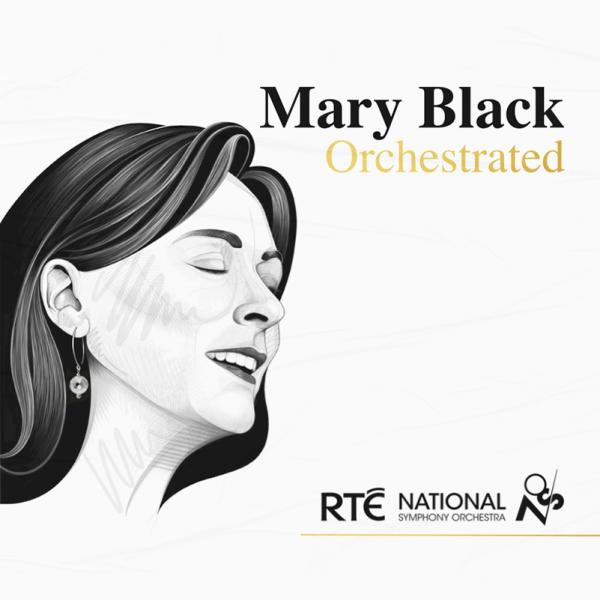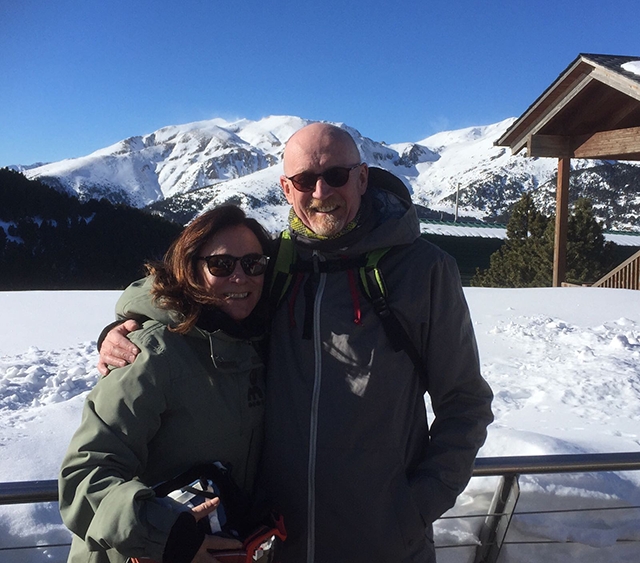Hail Mary, Full of Grace
Mary Black is still in the process of furnishing what she hoped would be her country retreat, a site far removed from the demands of recording and touring, for herself and her family, a place where the artist might quietly reconnect with the rich, green earth; but already the Irish press has jigged its way to her Kerry home.
"Sure, there was a piece in the Sunday World with pictures of 'Mary's secret hideaway'," says the singer, more in exasperation than anger. "Ach, it's not much of a secret if it's all over two pages of the Sunday World, is it? Already the letters are starting to arrive..."
Mary toys with a plate of seafood. She is what my grandfather would have called "a handsome woman"; not much in need of make-up. Diners at other tables are making a production number of not eavesdropping; but having the Mary Black, "the voice of Ireland", a woman who sung before Presidents Mary Robinson and William Clinton, resident in beauteous Dingle Bay is the whispered talk of the town.
Recently arrived Cranberries' rock chick Dolores O'Riordan Burton hasn't caused half the excitement. Mary is, as the auld saying goes, "one of our own". The repect is returned: "Mind you, don't get me wrong, they're nice letters. My fans, they're good people."
Good and legion, here in Eire, the US and Japan. Which seems odd, yet actually isn't: "I was a bit taken aback, too, at first. When we toured Japan the venues would be packed, but the audiences never made a sound. I thought I was dying out there. But at the end there were standing ovations, weeping, the lot. And tiny, beautifully packaged presents backstage."
Capable hands trace dainty shapes in the air: "It was a shame to open them... I found that Japanese folk songs are very emotional. About love and loss. You know, coping with what life throws at you. Like my songs. That must have been what they responded to."
Without a doubt. The solo albums began in 1983 as folk, soon became "contemporary" and now defy convenient categorisation but, from the debut of the self-explanatory Mary Black to 1997's risky and cirtically misunderstood Shine, the work has offered, for want of a better phrase, womanly intimacy and accepting warmth, a mature understanding of wounds daily inflicted and discreetly hidden.
Driving down long windling lanes to our destination, Sinead, the record company publicist, has been listening to the latest LP, Speaking With The Angel, and sighing. "Isn't that song, Cut By Wire, great? We've all been there. How does the line go? The one about 'Now as then lovers walk the fire'. Mary knows."
Mary Black's career parallels the coming out and rising up of women in Irish society. Her move away from her traditional folk roots and the Black Family band - her mother was a singer, her father played the fiddle - for a more adventurous, less hidebound sound mirrors a broader advancement. She and her music bridge old world and dawn. She has raised three children and her husband has always managed her career, but it is unabashedly her career.
Mary knows it: "As a woman who has a family and works, I face the same sort of problems as millions of women around the world who are trying to raise kids and hold down a job. I think a lot of women think and feel the same way about various issues. They have a basic sympathy with each other, which doesn't mean they always agree all the time. But I think we have an emotional bond. As a woman, I react to certain sentiments in a song. And I think that women do relate to the songs I choose for that reason."
As she doesn't write her own material, she chooses her tracks carefully. She even fusses compulsively over the running order; changing listings over and over again: "You'd be surprised how big a difference it can make to the mood of a thing."
Speaking With The Angel contains not only specially written tunes but almost casually aching covers of Sting, Fairpoint Convention and Crowded House hits. As she says, not arrogantly: "What makes them Mary Black songs is what you bring to them - the first thing being respect. I'm not the sort of person who says, 'This song doesn't sound right.' I'm the sort of person who says, 'This song doesn't feel right.'"
For some, the feel hasn't been quite right since she split with longtime producer Declan Sinnott. However, the assault she suffered for the rockier Shine had a little something to do with sexism. Mary shrugs it off: "I admit I was nervous when Declan decided he wanted to do other things. I couldn't sleep at nights. I didn't want to tell the band. But Declan was right and in my heart I knew it. No harsh words were spoken, but we were getting too comfortable. We were going stale.
"Being shaken up turned out to be the best thing. It gave me courage. And you know what some critics are like. They complain if you keep doing the same thing and if you do something different that's a fault as well. I do what I do because I love singing."
Mary isn't about to stop singing. Or picking and mixing. Not in an age where The Corrs are revamped for the dance floor; Boyzone appear on the verge of recording Danny Boy and the dreaded penny whistle has been shamelessly employed to add ethnic kick to Celine Dion's My Heart Will Go On.
Mary was collapsing categories and fusing influences long before Sinead O'Connor brought keening to the Prince canon and the pomp Oirishness of U2 and the Cranberries made them the aural Guinness and Irish coffee of the international music industry.
Not that she's busking for credit. Mary Black is hip enough to know that each successive generation believes it invented the wheel. It's the best sort of hip: "My kids are listening to Ocean Colour Scene and Radiohead and Supergrass. When I listen to it, I like it all. It makes sense to me. This might be 1999, but it sounds exactly like the music I grew up with. If Oasis are the Beatles, then Blur are the Kinks and there's not much that hasn't been done before."
Tired of diners' eyes burning into me, I slope off to the toilet for respite. When I return, a waitress is sitting in my seat. She and Mary are gabbing away about the weather; the restaurant, what they'll be doing tomorrow and for the rest of their lives. It's hardly rock 'n' roll, but I like it.


